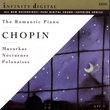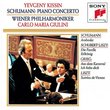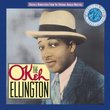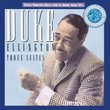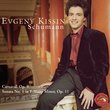| All Artists: Francesco Cilea, Charles Gounod, Leos Janacek, Erich Wolfgang Korngold, Jules Massenet, Giacomo Puccini, Nikolai Rimsky-Korsakov, Bedrich Smetana, Richard [1] Strauss, Pyotr Il'yich Tchaikovsky, Giuseppe Verdi, Valery Gergiev, Mariinsky (Kirov) Theater Orchestra, Renée Fleming, Yvona Skvarova Title: HOMAGE: The Age of the Diva Members Wishing: 0 Total Copies: 2 Label: Decca Original Release Date: 1/1/2006 Re-Release Date: 10/17/2006 Genre: Classical Styles: Opera & Classical Vocal, Historical Periods, Modern, 20th, & 21st Century Number of Discs: 1 SwapaCD Credits: 1 UPC: 028947580683 |
Search - Francesco Cilea, Charles Gounod, Leos Janacek :: HOMAGE: The Age of the Diva
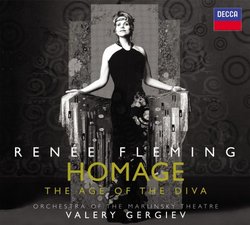 | Francesco Cilea, Charles Gounod, Leos Janacek HOMAGE: The Age of the Diva Genre: Classical
RARELY PERFORMED OPERA ARIAS AND FORGOTTEN GEMS CAREFULLY SELECTED BY TODAY?S LEADING SOPRANO. HOMAGE, THE AGE OF THE DIVA IS A TRIBUTE TO THE ARTISTS WHO GAVE LIFE TO THESE WORKS. Acclaimed throughout the world?s great o... more » ![header=[] body=[This CD is available to be requested as disc only.]](/images/attributes/disc.png?v=a4e11020) ![header=[] body=[This CD is available to be requested with the disc and back insert.]](/images/attributes/disc_back.png?v=a4e11020) ![header=[] body=[This CD is available to be requested with the disc and front insert.]](/images/attributes/disc_front.png?v=a4e11020) ![header=[] body=[This CD is available to be requested with the disc, front and back inserts.]](/images/attributes/disc_front_back.png?v=a4e11020) |
Larger Image |
CD DetailsSynopsis
Album Description RARELY PERFORMED OPERA ARIAS AND FORGOTTEN GEMS CAREFULLY SELECTED BY TODAY?S LEADING SOPRANO. HOMAGE, THE AGE OF THE DIVA IS A TRIBUTE TO THE ARTISTS WHO GAVE LIFE TO THESE WORKS. Acclaimed throughout the world?s great opera houses, American soprano Renée Fleming enjoys particular success in roles from the late 19th and early 20th centuries when glorious vocal writing and opulent orchestrations took the art of opera to new heights. In studying and performing this passionately lyrical music Renée Fleming became increasingly fascinated with her predecessors - sopranos of a golden age who made this intensely emotional music their own. In her latest recording project Renée Fleming pays tribute to remarkable singers including Lotte Lehmann, Maria Jeritza, Rosa Ponselle and Mary Garden; women who achieved iconic status in a rapidly changing world in which their fame was spread through recordings, film and advertising - a time which could be described as ?The Age Of The Diva?. The beautiful music links the 19th century of Verdi and Gounod with the 20th century of Korngold and Richard Strauss. All of the pieces were championed by the Divas of the past, some of them come from operas that are still very popular today (Tosca & Il Trovatore), many others are from operas that have been forgotten. Renée Fleming rediscovers these "lost jewels" - including arias by Cilea, Smetana, and Rimsky-Korsakov - that were big hits during their time and now presents them for a new generation. For this passionate, richly orchestrated repertoire, the role of the orchestra is enormously important and Renée is joined by the acclaimed Orchestra of the Mariinsky Theatre under their music director Valery Gergiev. Similarly Requested CDs
|
CD ReviewsThe welcome luxury of rare music and a great voice Santa Fe Listener | Santa Fe, NM USA | 10/28/2006 (5 out of 5 stars) "Two facts about this CD are undeniable: most of the arias will be unknown even to experienced opera fans, and Fleming's voice is in fantastic shape. I can't vouch for her pronunciation of Russian and Czech, but except for Mattila, no soprano before the public has sung these Rimsky, Tchaikovsky, Smetana, and Janacek arias with auch plush, secure, and ear-ravishing tone. In fact, the two conventional numbers from Tosca and Adriana Lecouvreur are the weakest here--they sound mannered compared to greats like Callas and Leontyne Price, nor does Fleming have a voice with the heft to handle Tosca in the opera house. The impassioned excerpt form Jenufa is especially welcome since Fleming repesents a major voice in the role; she is veyr affecting. It's true that Fleming still indulges in pushing her emotions to stagey lengths--more diva than real-life woman--and she throws in sobs and catches that we could well do without. Even so, this is her first CD since a similar recital with Solti in 1997 where we get the luxutry of world-class conducting. Gergiev is splendid, particularly in the Slavic selections. The recorded sound is fine. All in all, this is a great treat for Fleming's countless fans and a reminder of how rare a true opera superstar has become." Fleming's Elaborate Voice a Compatible Match for Turn-of-the Ed Uyeshima | San Francisco, CA USA | 11/07/2006 (4 out of 5 stars) "Reigning soprano Renée Fleming's beautifully fulsome voice is put on dramatically effective display in a surprisingly accommodating program that highlights the selections sung by prima donnas at the turn of the last century. Unlike her forays into Handel or even her pop-jazz repertoire, she does not try to harness her sometimes florid mannerisms into a range compatible with her material. If anything, this disc really showcases her technical assuredness in what could have been an elaborate exercise in self-indulgence. With her range amazingly clean and her legato just about perfect, she dives headlong into these relative obscurities that have been chosen to evoke renowned singers from that period. Among the most thrilling tracks here is Richard Strauss' "Orchesterzwischenspiel" segueing into Fleming's Danae on "Wie umgibst du mich mit Frieden" from "Die Liebe der Danae". She superbly evokes German soprano Lotte Lehmann on "Ich ging zu ihm" from Erich Wolfgang Korngold's "Das Wunder der Heliane" and Lehmann's Moravian rival Maria Jeritza on the hyper-dramatic fireworks of "Mamicko, mam tezkou hlavu...Kdo to je?" from Leos Janacek's "Jenufa". She covers more familiar territory with "Vissi d'arte" from Puccini's "Tosca" and "Tacea la notte...Di tale amor" from Verdi's "Il trovatore", both benefiting from her accomplished phrasing. There are moments when I feel she gets a bit coy, for example, her overly ornate approach to the waltz, "Le ciel rayonne, l'oiseau chante...O légère hirondell," from Gounod's "Mireille". However, she rebounds admirably on my two favorite tracks, the moving "J'ai versé le poison dans cette coupe d'or" from Massenet's "Cléopâtre" (a tribute to Scottish soprano Mary Garden) and the tragic "Pochudilis mne budto golosa" from Tchaikovsky's early opera success, "Oprichnik". Overall, with fittingly stentorian accompaniment from the Orchestra of the Mariinsky Theatre of St. Petersburg led by Valery Gergiev, the disc proves Fleming to be at the height of her interpretative powers even if the hodgepodge nature of the material here is jarring at times." Renée Fleming's Best CD! Juan Duarte Cuadrado | Madrid, Madrid Spain | 10/24/2006 (5 out of 5 stars) ""Homage: The Age of The Diva" is probably Renée Fleming's best CD to date. Her choice of arias suit the singer perfectly well and show her musically and dramatically involved in what she sings. With the excellent support of Valery Gergiev, Fleming intoduces us to a bunch of arias that young listeners will discover for the first time and more veteran aficionados had been waiting to hear sung by the best soprano in the world.
From the sensuous, ethereal, unbelievable beauty of Korngold's "Ich ging zu ihm" to the fierce drama of "Dalibor", the almost agonizing melodrama of "Poveri fiori", the joy and lightness of "Mireille", the tremendous passion of the arias by Tchaikovsky and Rimsky-Korsakov and the intense tragedy of "Jenufa", Fleming has rarely combined her amazing technique (seamless legato, radiant and luminous high notes, the strong and expressive low register of her voice) with such a dramatic impact. If I had to take just one of Renée's CD to my desert island, it would be this one. Actually I think I am already addicted to it! I can't stop listening to it every day! Brava Ms Fleming!" |

 Track Listings (14) - Disc #1
Track Listings (14) - Disc #1
